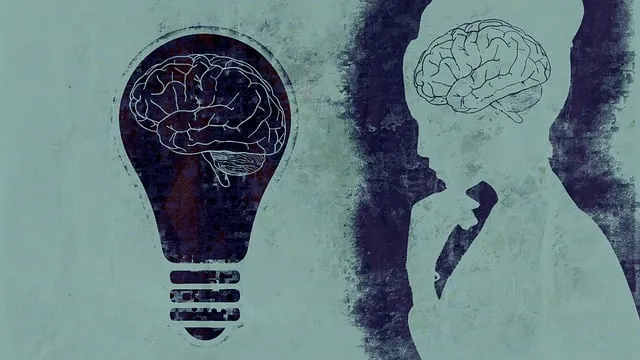Kaiser Permanente mental health Boulder offers holistic, culturally sensitive care through programs like Burnout Prevention and Self-Care Routine Development for providers. Mental Health First Aid equips community members to identify and respond to mental illness early, while conflict resolution techniques enhance navigation of mental health challenges within diverse communities. Professionals recognize red flags and use evidence-based strategies, including stress management and compassion cultivation, for effective crisis intervention. Post-crisis care includes tailored therapy, peer support groups, inner strength development, and burnout prevention programs based on Mental Health Education.
“In a world where crises can strike unexpectedly, having robust intervention strategies is paramount. This article explores essential crisis intervention techniques, drawing insights from leading healthcare providers like Kaiser Permanente and community initiatives in Boulder. We delve into understanding crisis interventions, exploring evidence-based approaches that empower individuals and communities. From identifying early warning signs to post-crisis care, these strategies ensure holistic support, particularly focusing on mental health, as exemplified by the Mental Health First Aid program in Boulder.”
- Understanding Crisis Intervention: A Kaiser Permanente Approach
- Mental Health First Aid: Empowering Boulder Communities
- Identifying Red Flags: Early Warning Signs in Patients
- Evidence-Based Strategies for Effective Support
- Post-Crisis Care: Ensuring Long-Term Wellbeing
Understanding Crisis Intervention: A Kaiser Permanente Approach

Kaiser Permanente, a leading healthcare organization, offers valuable insights into Crisis Intervention strategies through its innovative programs and research in mental health care, particularly in Boulder, Colorado. Their approach emphasizes a holistic understanding of crisis situations, recognizing that each individual’s experience is unique and influenced by personal, social, and cultural factors. By integrating Burnout Prevention Strategies for Healthcare Providers, Kaiser Permanente aims to equip professionals with the tools to manage their own well-being while offering effective support during crises.
The organization’s commitment to Cultural Sensitivity in Mental Healthcare Practice is evident in its training programs, ensuring that interventions are tailored to meet the diverse needs of various communities. This approach not only enhances the quality of care but also fosters trust and accessibility in a wide range of patients. Additionally, Kaiser Permanente encourages healthcare providers to prioritize their own Self-Care Routine Development for Better Mental Health, recognizing that self-care is integral to preventing burnout and maintaining resilience in high-pressure environments.
Mental Health First Aid: Empowering Boulder Communities

Mental Health First Aid (MHFA) is a powerful tool that has been transforming communities across Boulder, thanks to organizations like Kaiser Permanente Mental Health. This evidence-based program equips community members, including first responders and laypeople, with the skills to identify, understand, and respond to signs of mental illness or substance abuse. By promoting early intervention, MHFA fosters a culture of care and support within Boulder’s diverse communities.
The program’s impact is profound, particularly in light of the growing importance of Risk Management Planning for Mental Health Professionals. MHFA not only enhances individuals’ ability to recognize crisis situations but also encourages help-seeking behaviors, thereby reducing the burden on emergency services. Furthermore, Kaiser Permanente Mental Health’s Community Outreach Program Implementation and promotion of Conflict Resolution Techniques contribute to a more resilient and connected Boulder, where residents are better equipped to navigate mental health challenges and support one another.
Identifying Red Flags: Early Warning Signs in Patients

Early identification of red flags is a crucial aspect of crisis intervention, and mental health professionals play a vital role in recognizing these warning signs. At Kaiser Permanente Mental Health Boulder, we emphasize the importance of vigilance when it comes to patient well-being. Red flags can manifest as sudden changes in behavior, mood swings, or distinct patterns of communication that signal distress. For instance, patients expressing feelings of hopelessness, helplessness, or intense anxiety may be experiencing a mental health crisis. Similarly, an abrupt decline in academic or professional performance, social withdrawal, or self-harming behaviors are significant indicators requiring immediate attention.
By staying attuned to these early warning signs, mental health professionals can facilitate timely interventions and support the development of coping skills. The goal is to empower individuals with effective strategies for managing crises before they escalate. Moreover, Kaiser Permanente’s comprehensive Mental Health Education Programs Design caters to diverse patient needs, offering valuable resources and insights into anxiety relief and stress management, ultimately contributing to improved mental well-being outcomes.
Evidence-Based Strategies for Effective Support

In the realm of crisis intervention, evidence-based strategies play a pivotal role in providing effective support, especially within healthcare settings like Kaiser Permanente mental health facilities in Boulder. These approaches have been extensively studied and proven to yield positive outcomes for individuals facing various crises, ranging from emotional distress to high-risk situations. By adopting evidence-based practices, mental health professionals can offer tailored interventions that address the unique needs of each client.
Among these strategies, Conflict Resolution Techniques stand out as a powerful tool. Teaching clients effective communication and conflict management skills empowers them to navigate challenging interactions with greater ease. Additionally, incorporating Stress Management techniques allows individuals to build resilience against future crises. Compassion Cultivation Practices have also gained prominence, fostering empathy and understanding not only between the client and support staff but also within the client’s own mindset. These integrated approaches collectively contribute to a comprehensive crisis intervention framework, ensuring that Kaiser Permanente mental health Boulder professionals deliver high-quality care tailored to individual needs.
Post-Crisis Care: Ensuring Long-Term Wellbeing

Post-crisis care is a vital component of effective crisis intervention strategies. Following an initial response to help individuals cope with an event or situation, sustained support is crucial to ensure long-term mental health and wellbeing. At Kaiser Permanente Mental Health Boulder, we understand that recovery is a journey, not a destination. Our dedicated team offers comprehensive post-crisis care tailored to each individual’s unique needs. This includes ongoing therapy sessions, peer support groups, and innovative programs designed to foster inner strength development and burnout prevention.
Through the implementation of evidence-based Mental Health Education Programs, we empower individuals to navigate their mental health challenges effectively. By focusing on both practical tools for coping and enhancing emotional resilience, our post-crisis care approach enables folks to rebuild their lives with hope and purpose. We believe that nurturing inner strength is key to long-term recovery, ensuring individuals have the resources needed to thrive even in the face of adversity.
In conclusion, crisis intervention strategies play a vital role in fostering community well-being, particularly in areas like Boulder where mental health is a priority. The Kaiser Permanente approach, combined with programs like Mental Health First Aid, equips professionals and communities to identify red flags early and provide effective support. By utilizing evidence-based strategies and focusing on post-crisis care, we can ensure long-term wellbeing for those facing mental health challenges, ultimately revolutionizing the way we navigate crises in Boulder and beyond.






